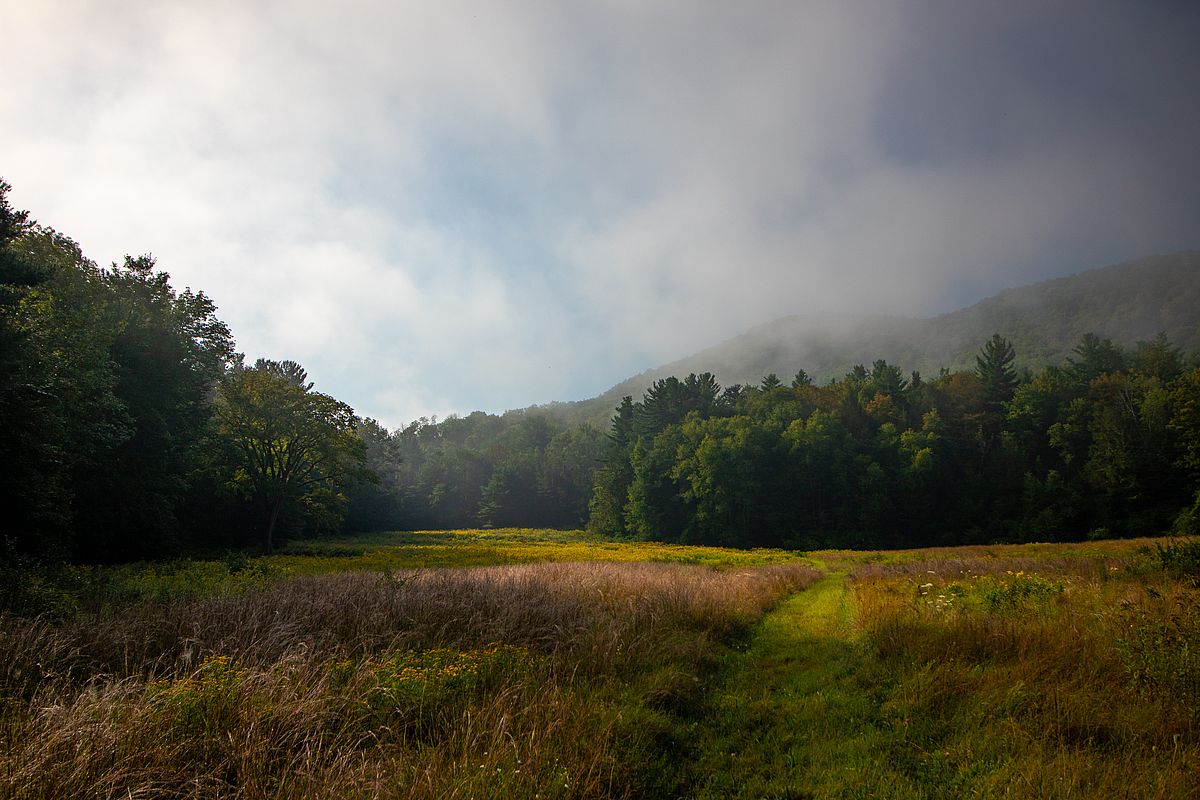Historic Partnership in Stockbridge
Stockbridge-Munsee regaining access to 351 acres of homeland.

Photo: Douglas Brown
Over two hundred years ago, the Stockbridge-Munsee Band of Mohicans was forced off their homeland, now known as the Berkshires and Hudson Valley, where they and their ancestors had lived for thousands of years. After many years and more forced removals, the Tribe relocated to a reservation in Wisconsin and refused to move any further. They never lost their connection to the Berkshires, always returning to conduct official business or reconnect to their homelands. When they learned that Monument Mountain was in need of protection, the Tribe took action as it is a place of great ecological, historical, and cultural significance. Now the northern edge of Monument Mountain will once again be stewarded by the tribe.
In August, Massachusetts Lieutenant Governor Kim Driscoll announced the award of a $2.26 million grant from the Commonwealth’s Municipal Vulnerability Preparedness program (MVP), which will support the Stockbridge-Munsee's purchase of the property and implementation of a stewardship plan to ensure the land is protected as a nature-based solution for climate change resiliency.
Stockbridge-Munsee President Shannon Holsey illuminated the perspective of her community, saying "We are creating a paradigm shift in how society invests in tribal nations by grounding an investment strategy in Indigenous systems thinking, recognizing the interconnectedness of all things and our responsibilities to our homelands and each other. Our approach ensures a resilient and regenerative framework from start to finish, built around the origins of our homeland."
Collaborative Effort: When BNRC learned that this land, known as Fenn Farm, was for sale, Beth Mills, BNRC’s Director of Land Conservation, convened a working group including the Trustees of Reservations, Stockbridge Land Trust, Laurel Hill Association, the Town of Stockbridge, MassWildlife, and Stockbridge-Munsee Tribal Council, Conservation, and Cultural Affairs Department, to explore conservation possibilities and facilitate discussion between the landowners, their agents, and the Federally Recognized Tribal Nation. When the Tribe made the decision to pursue ownership, including applying for the MVP grant, BNRC and these partners worked together to support them.
“We often provide ‘assists’ for large conservation projects, but this is unlike anything BNRC has ever been involved in,” said BNRC President Jenny Hansell. “I could not be more delighted that, by convening the partners and providing legal and grant-writing support, we were able to assist in this historic and important return of the Tribe’s historic landshomeland.”
The parcel is a combination of farm, forest, and a part of the Agawam swamp, on the north slope of Monument Mountain and surrounded by conserved land on all sides. For generations it has been owned and cared for by the Swann family, most recently by artist Clover Swann, who was a respected philanthropist who supported land conservation and protection. By all the measures of evaluating land parcels, Fenn Farm scores highly on our conservation criteria for land protection.
Holsey told the Berkshire Eagle that the project is “the reclamation of our kinship systems, our governance systems, our ceremony and spiritually, our language, our culture, and our food and medicinal systems. Those are all based on our relationship to the land.”
The Stockbridge-Munsee Community will work with BNRC and partners over the coming year to develop a stewardship plan to ensure the ongoing health of the ecosystem.
“Land trusts across the country are grappling with the complicated history of conservation”, says Mills. “Land ownership itself is part of our colonialist past. People of color, and indigenous people here in the Berkshires, have been systematically and intentionally shut out from access to the land and the ability to maintain their cultural values associated with the land and the environment. For BNRC to be able to support the righting of this injustice is an honor.”
